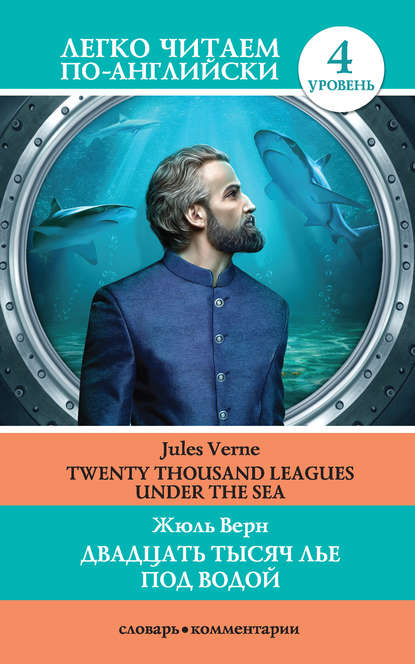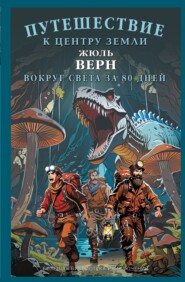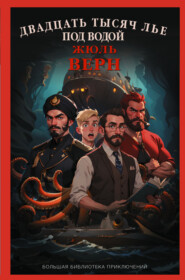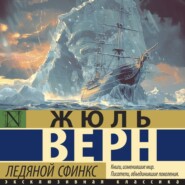По всем вопросам обращайтесь на: info@litportal.ru
(©) 2003-2024.
✖
Двадцать тысяч лье под водой / Twenty Thousand Leagues Under the Sea
Настройки чтения
Размер шрифта
Высота строк
Поля
“Now, professor,” he said, “if you’d like to inspect the Nautilus, I’m yours to command.”
Chapter 11
Captain Nemo stood up. I followed him. Contrived at the rear of the dining room, a double door opened, and I entered a room.
It was a library. Tall, black-rosewood bookcases held a large number of books. Light, movable reading stands, which could be pushed away or pulled near as desired, allowed books to be positioned on them for easy study. In the center stood a huge table covered with pamphlets, among which some newspapers. Electric light was falling from four globes set in the ceiling. I couldn’t believe my eyes.
“Captain Nemo,” I told my host, “this is a library that would do credit to more than one continental palace, and I truly marvel to think it can go with you into the deepest seas.”
“Where could one find greater silence or solitude, professor?” Captain Nemo replied. “Did your study at the museum afford you such a perfect retreat?”
“No, sir, and I might add that you own 6,000 or 7,000 volumes here.”
“12,000, Professor Aronnax. They’re my sole remaining ties with dry land. I left the shore the day my Nautilus submerged for the first time under the waters. That day I purchased my last volumes, my last pamphlets, my last newspapers. Professor, these books are at your disposal, and you may use them freely.”
I thanked Captain Nemo and approached the shelves of this library. Written in every language, books on science, ethics, and literature were there in abundance, but I didn’t see a single work on economics. One odd detail: all these books were shelved indiscriminately without regard to the language in which they were written, and this jumble proved that the Nautilus’s captain could read fluently many languages.
Among these books I noted masterpieces by the greats of ancient and modern times. Books on history, poetry, fiction, and science, mechanics, ballistics, hydrography, meteorology, geography, geology, natural history, astronomy!
“Sir,” I told the captain, “thank you for placing this library at my disposal. There are scientific treasures here, and I’ll take advantage of them.”
“This room isn’t only a library,” Captain Nemo said, “it’s also a smoking room.”
“A smoking room?” I exclaimed. “Then one may smoke on board?”
“Surely.”
“In that case, sir, I’m forced to believe that you’ve kept up relations with Havana.”
“None whatever,” the captain replied. “Try this cigar, Professor Aronnax, and even though it doesn’t come from Havana, it will satisfy you.”
I took the cigar that was offered me, whose shape recalled those from Cuba; but it seemed to be made of gold leaf. I lit it.
“It’s excellent,” I said, “but it’s not from the tobacco plant.”
“Right,” the captain replied, “this tobacco comes from neither Havana nor the Orient. It’s a kind of nicotine-rich seaweed that the ocean supplies me. Smoke these cigars whenever you like, without debating their origin.”
Then Captain Nemo opened a door, and I passed into an immense, splendidly lit lounge.
It was a huge quadrilateral with canted corners, ten meters long, six wide, five high. A luminous ceiling, decorated with delicate arabesques, distributed a soft, clear daylight over all the wonders gathered in this museum. For a museum it truly was!
Thirty pictures by the masters, tapestries of austere design. There I saw canvases of the highest value. Wonderful miniature statues in marble or bronze, modeled after antiquity’s finest originals, stood on their pedestals in the corners of this magnificent museum.
“Sir,” I replied, “might I venture to identify you as an artist?”
“A collector, sir, nothing more. Formerly I loved acquiring these beautiful works created by the hand of man, and I’ve been able to gather some objects of great value. They’re my last mementos of those shores that are now dead for me. In my eyes, your modern artists are already as old as the ancients. They’ve existed for 2,000 or 3,000 years, and I mix them up in my mind. The masters are ageless.”
Captain Nemo fell silent and seemed lost in reverie. I regarded him with intense excitement. Leaning his elbow on the corner of a valuable mosaic table, he no longer saw me, he had forgotten my very presence.
I didn’t disturb his meditations but continued to pass in review the curiosities that enriched this lounge.
After the works of art, natural rarities predominated. They consisted chiefly of plants, shells, and other exhibits from the ocean.
“You’re examining my shells, professor? For me they have an added charm, since I’ve collected every one of them with my own two hands, and not a sea on the globe has escaped my investigations.”
“I understand, captain. You’re a man who gathers his treasure in person. No museum in Europe owns such a collection of exhibits from the ocean. May I learn—”
“Professor Aronnax,” Captain Nemo answered me, “I’ve said you’d be free aboard my vessel. You may inspect the Nautilus in detail, and I’ll be delighted to act as your guide. But beforehand, come inspect the cabin set aside for you.”
I followed Captain Nemo led me back down the ship’s gangways. He took me to the bow, and there I found not just a cabin but an elegant stateroom with a bed, a washstand, and various other furnishings.
I could only thank my host.
“Your stateroom adjoins mine,” he told me, opening a door, “and mine leads into that lounge we’ve just left.”
I entered the captain’s stateroom. It had an austere, almost monastic appearance. An iron bedstead, a worktable, some washstand fixtures. Subdued lighting. No luxuries. Just the bare necessities.
Captain Nemo showed me to a bench.
“Kindly be seated,” he told me.
I sat, and he began speaking,
Chapter 12
“Sir,” Captain Nemo said, showing me the instruments hanging on the walls of his stateroom, “these are the devices needed to navigate the Nautilus. Here, as in the lounge, I always have them before my eyes, and they indicate my position and exact heading in the middle of the ocean. You’re familiar with some of them, such as the thermometer, which gives the temperature inside the Nautilus; the barometer, which measures the heaviness of the outside air and forecasts changes in the weather; the humidistat, which indicates the degree of dryness in the atmosphere; the storm glass, which foretells the arrival of tempests; the compass, which steers my course; the sextant, which takes the sun’s altitude and tells me my latitude; chronometers, which allow me to calculate my longitude; and finally, spyglasses for both day and night, enabling me to scrutinize every point of the horizon once the Nautilus has risen to the surface of the waves.”
“These are the normal navigational instruments,” I replied, “and I’m familiar with their uses. But no doubt these others are unique. That one—isn’t it a pressure gauge[25 - a pressure gauge – манометр]?”
“It is indeed a pressure gauge. It’s placed in contact with the water, and it gives me the depth at which my submersible is sitting.”
“And these?”
“They’re thermometric sounding lines[26 - thermometric sounding lines – термометрические зонды] that report water temperatures in the different strata.”
“And these other instruments, whose functions I can’t even guess?”
“Here, professor, I need to give you some background information,” Captain Nemo said. He fell silent for some moments, then he said:
“There’s a powerful, obedient, swift, and effortless force which reigns supreme aboard my vessel. It does everything. It lights me, it warms me, it’s the soul of my mechanical equipment. This force is electricity.”
“Electricity!” I exclaimed in some surprise.
“Yes, sir.”
“But, captain, you have a tremendous speed of movement! How do you replace this marvelous force, since you no longer stay in contact with the shore?”
“At the bottom of the sea there exist much zinc, iron, silver, and gold, and I use the sea itself for the source of my electricity.”

















